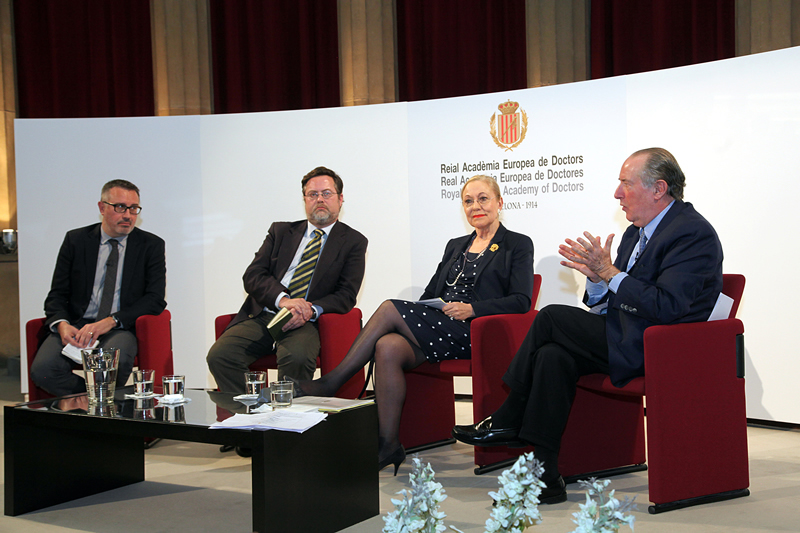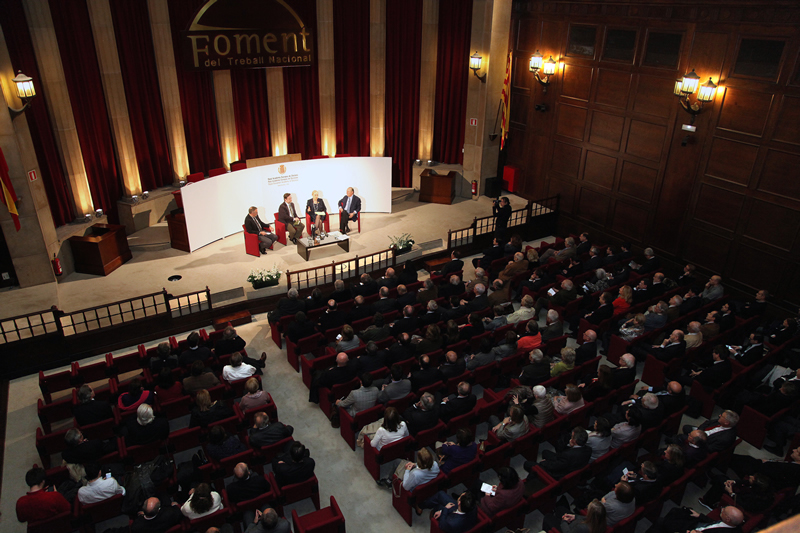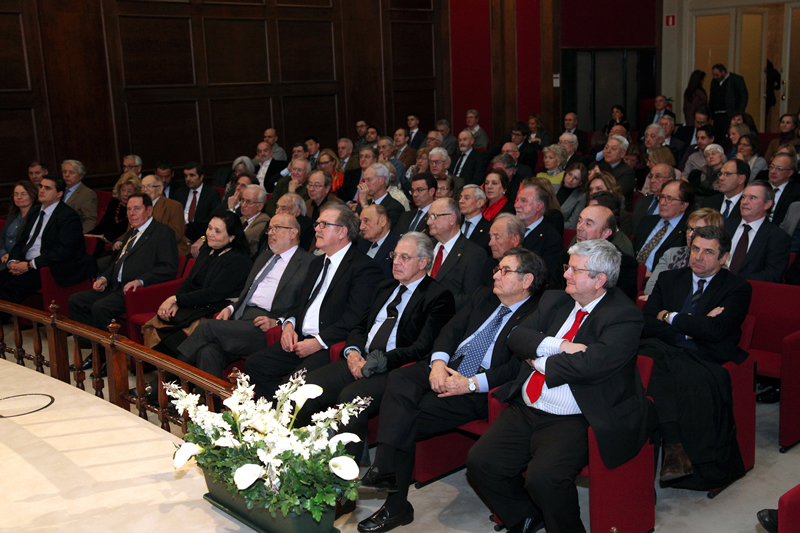Benita Ferrero-Waldner, former Federal Minister for Foreign Affairs of Austria and ex-Commissioner for External Relations and European Neighborhood Policy; Santiago Castellà, Professor of Law and International Relations at the Rovira i Virgili University and academician of the Royal European Academy of Doctors-Barcelona 1914 (RAED), and José María Gay de Liébana, Professor of Financial Economics and Accounting at the University of Barcelona and also academician of the RAED coincided in the debate organized by the Royal Academy under the title “The internal threat of the European Union” in which the risk of dissolution of the Union is “more real than ever” in the more than a half century of history of European institutions. The debate was led by Lluís Uria, chief editor of the International section of the Spanish newspaper La Vanguardia.
For Ferrero-Waldner, Brexit has left the Union very weakened by making clear that dismemberment isn’t only a legal possibility, but a reality. For the former European commissioner, “the departure of one more member state, as France could be if the National Front will win the French elections, would blow up the EU, would be a catastrophe for the common history”. Ferrero-Waldner called for “more cohesion and more optimism, encouraged by the administrations and the European organizations at all levels”, as well as a profound reform of the institution that returns to the States or regions certain competencies. “This is the main point of discredit of the Union that take advantage of populism” she said.
Castellà, for his part, pointed out what he considers to be three fundamental challenges facing European institutions in the short term and against which Europeanism should also work together. “In just a few months the European Union faces three scenarios of danger to its future: the formalization of Brexit this March, the holding of elections in different Member States with a foreseeable growth of populism and the forced repositioning of Europe in the world for the new framework of relations between the United States and Russia, which will open a new international context much more complex than the current one”.
Gay de Liébana added an economic vision to these challenges. “Brexit has both a political and an economic root, and as it came the Grexit, which has been and is a very real threat, and even the Frexit”. Europe is rapidly losing global economic prominence and that doesn’t help the Union, which is becoming a geriatric residence. There is weariness and disrepute towards the institutions, mainly the most remote ones, such as those of the EU”.
Uria also echoed an international political context that doesn’t help the future and stability of the European institutions. “The Brexit opened a door that nobody believed could be opened and the new Trump Administration encourages from the other side of the Atlantic that the Union is a failure. In Europe there are increasing political forces that promote the disintegration, it’s very probable that the National Front of Marine Le Pen wins the first round of the French presidential elections making the anti-European flag”.
This was the second debate of the Royal European Academy of Doctors-Barcelona 1914 on the future of Europe. The nearly 300 people who filled the Hall of Fomento del Trabajo Nacional -45 of them academicians – give good faith of the interest that raised the event. In its resolute commitment to promoting the values of Europeanism, the Royal Academy will also discuss the future of the EU during its Third International Act, which will take place in different Baltic capitals between the next 15 and 22 July. The session will be entitled “A single Europe, an area of freedom, security and justice”.






